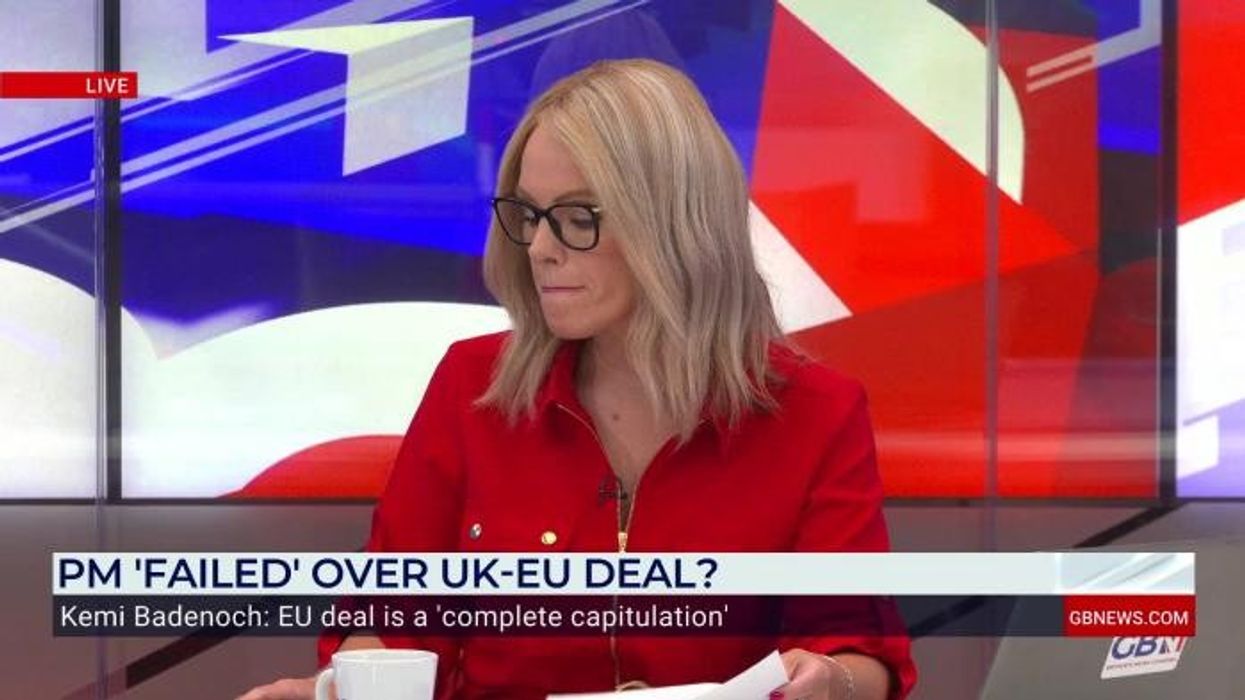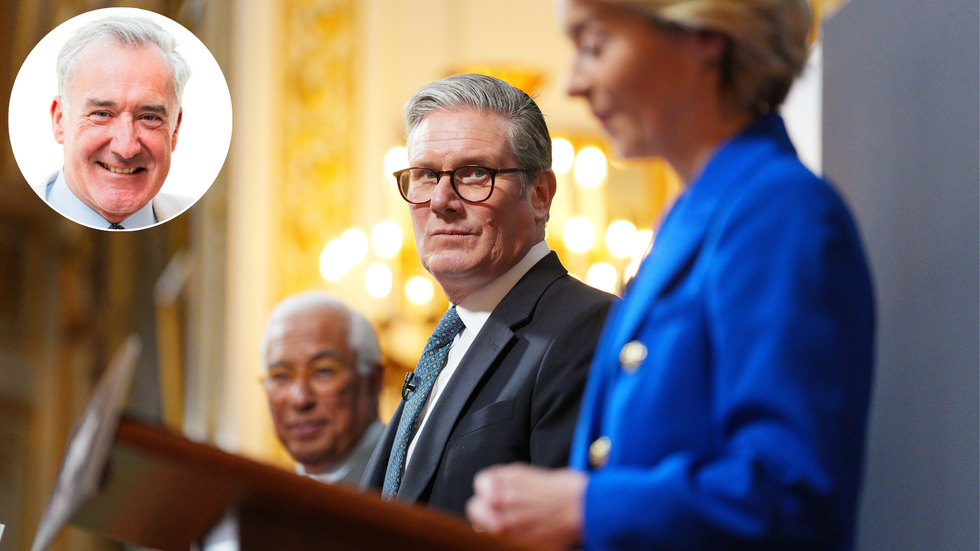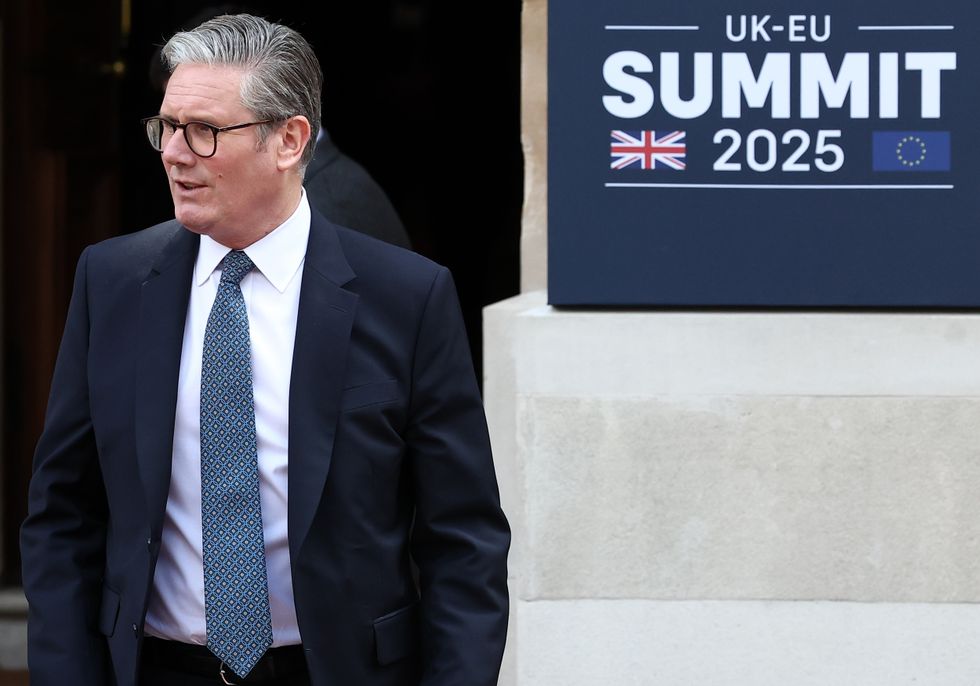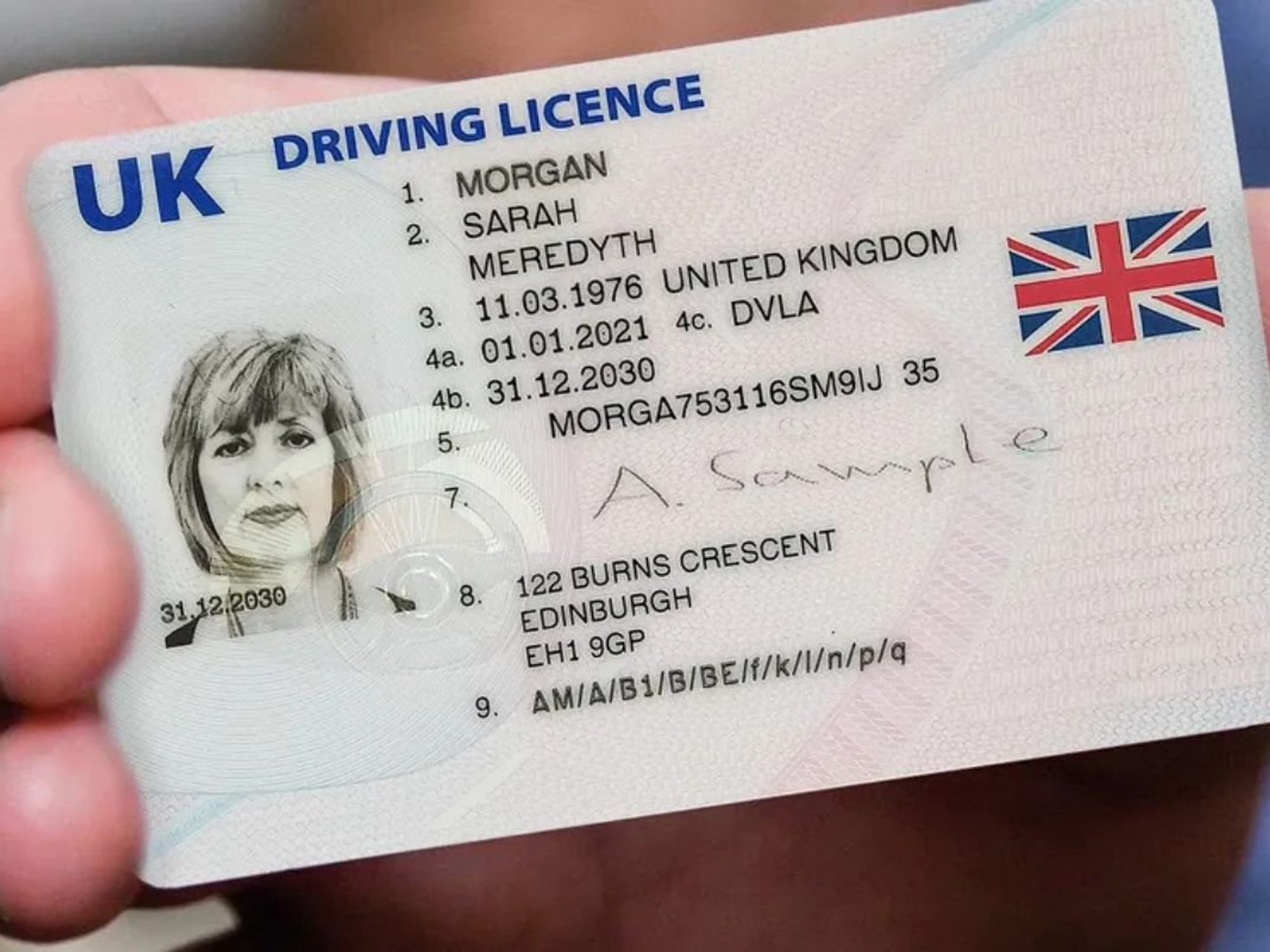My late wife saw Brexit as a sacred duty, now we’re rejoining by inches not leaps - Colin Brazier

Steven Woolfe unleashes heated rant at 'scam' UK-EU deal - 'I am FURIOUS!' |
GB News
OPINION: Jo believed in sovereignty with a passion few understood—today’s quiet return to the EU would have filled her with fury, says Colin Brazier.
Don't Miss
Most Read
Trending on GB News
My late wife, Jo, was a woman of strong views, especially when it came to politics. At university, and well into her 20s, she was a member of the Revolutionary Communist Party. And, although she moved away from the hard Left, she retained its suspicion of supra-national entities like the European Commission.
Later in life (and by this time married to a wicked Tory) she gave up work and moved with me to Belgium, where I’d been appointed Sky TV’s Brussels Correspondent. Many of those we met there owed their living to the EU. On the rare occasions they were called upon to defend an increasingly indefensible institution, it was usually against attacks from the Right. Armed with quotes from Tony Benn, Jo would discombobulate them with a critique from the Left.
I thought of her likely fury this month when the Prime Minister made his craven deal marking the beginning of the UK’s ineluctable surrender to Brussels. For her, Brexit was beyond politics. In 2018, the year we were originally scheduled to leave the EU, I remember walking away from a hospital where she had just had a scan. Its results were promising. She turned to me in the car park and said with her characteristic impishness: “I might live to see Brexit!” But the scan was a false dawn and within a few weeks cancer had claimed her life.
So for me, Brexit wasn’t just another twist in the road of human affairs and geopolitics. It had a sacred quality. Almost, if not quite, my late wife’s dying wish. She would have been enraged by Parliament’s blocking of Brexit, but not surprised, given how many MPs were Remainers.

My late wife saw Brexit as a sacred duty, now we’re rejoining by inches not leaps - Colin Brazier
|GB News/Getty Images
But what would she have made of Starmer’s ‘renegotiation’? It wasn’t just what he’d given up—selling out our fishermen and limiting our capacity as a nation to innovate. It was the puerile way he then sold it to the British people. The tweets from No. 10 showing queues at passport control. As if waiting in a line for a few minutes less suddenly made the EU project worth hitching our wagon to.
In another post from the PM’s official account, he said: “For years, your weekly shop has gone up. Our deal with the EU will mean lower food prices at the checkout. Putting more money in your pocket.”
Plenty of people questioned if anything Sir Keir had just done would lead to lower food prices. But it was the tone of his crowing which set my teeth on edge. The reductive depiction of a profound subject—our right to self-determination—as an act of improved consumer choice. Our national destiny viewed through the lens of grocery retailing.
I tweeted my reaction: “I lived in Brussels for years. Saw what a venally corrupt, democracy-strangling, sovereignty-squashing monstrosity it had become. For those of us who saw no alternative to Brexit, myself included, freedom from the EU was worth any price. Starmer reduces our struggle to ‘shopping’.”
Labour seems to have calculated that emphasising the benefits of returning to the EU fold in pounds, shillings and pence (and, perhaps, by dangling the carrot of more time on holiday thanks to e-passports), is the way to win over the doubters.
It’s easy to see why they think this strategy smart. Because, for many pro-EU Labour activists, it has become an article of faith bordering on holy writ that we only voted Leave because of a claim about money. For them, the whole referendum result was based on a single lie about cash—the infamous slogan on the side of a bus, claiming that the UK “sends the EU £350 million a week” and that it would be better to use that budget to “fund our NHS instead.”
I have no intention of re-litigating this point. I simply observe that Remainers and Rejoiners have always believed that—when it comes to Brexit—the British public are uniquely susceptible to financial persuasion. If numbers on a bus pushed Britain out, then surely we’ll rejoin if convinced our weekly shop will cost less.
As many of my fellow Brexiters will know in their bones, pitching the argument this way isn’t just wrong-headed, it’s also profoundly patronising. Remainers like to think that Brexit happened because “low-information” voters were gulled by a promise of more cash for the NHS. That the largest democratic mandate in British history—17,410,742 votes for Leave—was an aberration. A xenophobic spasm. A protest vote by ‘deplorables’.
Nothing could be further from the truth. In my opinion, and I’m afraid it’s an inconvenient truth for those who believe wholeheartedly in the moral purity of the EU, most of those who voted to Leave had long made up their minds that—given the chance—they would vote to exit. It was their settled opinion, not a whim based on a momentary snap-shot.

OPINION: Jo believed in sovereignty with a passion few understood—today’s quiet return to the EU would have filled her with fury, says Colin Brazier.
|Getty Images
They included people like me who had lived and worked in Brussels and seen “the belly of the beast”. People who suspected that, however high-minded the idea of federalism sounded, the nation-state is, in fact, the indivisible unit of governance. And that any attempt to subvert that principle is apt to produce a democratic deficit.
From Brussels I travelled to most of the then 28 EU countries. The most impressive were often those nations which ploughed their own furrow—the Swiss or the Swedes, for instance—whose distinctive answers to the questions posed by the 21st century, the EU sought to efface. Odd when you think about it. We live in a world dedicated to ‘diversity’, except when it comes to the EU, where divergence is a mortal constitutional sin.
So what happens next?
The truth is that the Establishment has learned its lesson. I remember at Sky TV, by this time a studio presenter, hosting several debates on-screen, usually after by-elections, about low voter turnout. Which everybody agreed was a Bad Thing. And then the referendum campaign came along. Suddenly, people who hitherto had not appeared all that engaged in politics were talking about Brexit at the supermarket checkout.
Those conversations were—yes—sometimes about money. But they often showed that Everyman’s grasp of complicated questions of sovereignty was more sophisticated than our political elite ever imagined. They weren’t apathetic about the EU, they’d just got used to feeling powerless.
Our Remainer elites have no intention of that happening again. So expect more of the same. More managed apathy. Britain’s reintegration by sleight of hand. By inches, not leaps. And an emphasis on how closer links with Europe will make life cheaper and easier for ‘ordinary people’.
Never any mention of the counterfactual—where the UK would’ve been dragged had we stayed in. And never any acknowledgement that millions of people voted for Brexit with their eyes wide open.
Fully aware that the EU, like a spoiled child (and pour encourager les autres) would make life as hard as possible for the UK once we left. Fully aware (and reconciled, as my late wife was) to the probability that freedom would come at a price.
And fully aware the price of Brexit was—and still is—worth paying.
More From GB News










